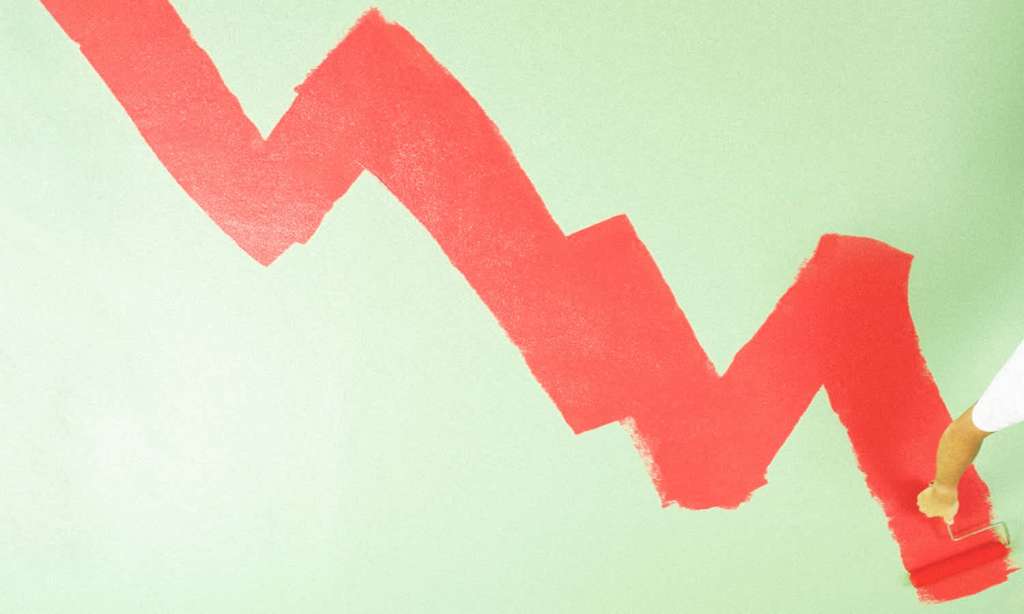The Reserve Bank of Australia’s ratcheting up of interest rates is expected to have a serious impact on Aussie property prices.
The housing market in Sydney and Melbourne was predicted to drop by between 15 and 20% even before the 0.5% interest rate increase set by the RBA on Tuesday.
Figures from Canstar suggest that if the cash rate hits 2.5%, the average variable-rate mortgage would reach 5.15%. That’s around double what it was just 12 months ago. Some economists are however predicting that the cash rate could go as high as 3.5% as the RBA works to control inflation.
As such, owning a home right now is no where near as attractive as it once was. Although both capital cities saw vast increases in the value of property during the pandemic, the market is rapidly cooling. Property prices increased across the board, with regional areas seeing steep market rises along with metropolitan ones.
Financial experts and analysts, including CommBank and ANZ, are now predicting Sydney and Melbourne property prices to decline by 20% by the end of the year. Already, house prices have dropped 1.8% in Sydney, and 1.3% in Melbourne, in June alone.
Tim Lawless, research director at CoreLogic, says it’s likely that the “rate of decline in housing values will continue to gather steam and become more widespread”.
“Australia’s housing market outlook is becoming increasingly skewed to the downside, with the trajectory of housing values heavily dependent on the path interest rates take,” he said.
Is a Property Market Crash Really a Bad Thing?
For millennials, now the most populous demographic in the country, you might expect a whole lot of shoulder-shrugging if the housing market did slowly slide off a cliff. The generation virtually doomed to renting their entire lives has the lowest level of property ownership of any generation at their age and, with prices the way they are, or were, it’s unlikely that the balance will be redressed any time soon.
In fact, millennial indifference and indeed excitement at the prospect of a property market crash is a bit of a meme in itself. Two years ago, the US publication CCN ran the story “These Entitled Millennials Are Cheering for a Housing Market Crash“, railing against a tide of millennials hoping for a house market crash so they can finally afford a home.
“Instead of loafing on the couch with Netflix or socializing… any millennial with ambitions to own a house shouldn’t be cheering for a housing market crash, even if one is imminent.” the article reads.
“They should be working as hard as they can so that they can save up to afford the house of their dreams in whatever market they find themselves”.
im a greedy millennial and i want the housing market to crash so I can get a $300,000 house for $75,000
— Kyle David (@EsKow_) July 5, 2022
It’s not unreasonable to think that there may be a bit of celebration going on amongst a generation otherwise locked out of property ownership if the market were to crash. However, that is not really what we’re looking at here. House prices in Australia rose by an average of 20% in 2021 alone. Even the predicted 20% decline by the end of 2022 would still leave houses where they were a year ago: unaffordable.
broke: wanting to maintain property values for the sake of your portfolio.
woke: wanting the housing market to crash so people can actually afford shit
baroque: wanting the housing market to crash even though you still couldn’t afford a house purely for the schadenfreude.
— Video Cathunk (@Exameter) July 5, 2022
ANZ and Frank Knight have previously said that house prices would need to decline by around 40% to make them attainable to the average buyer in Australia.
UNSW Business School’s Professor Peter Swan has said that “the price reductions we’ve seen so far are really quite mild”
He puts the decline down to the cooling of a super-heated market driven by “ludicrously low-interest-rate policies pursued by the RBA in this time, and the massive injection of cash and stimulus into the economy of towards a trillion dollars as the government borrowed to the hilt over the period of its COVID pandemic panic”.
“What tends to happen in a recession is that fewer properties come onto the market, and this ameliorates price falls.
“We also saw that very few properties were left on the market after the price hikes a year or so ago, and it is only recently that houses have come back onto the market. This may also have contributed to the slight fall in house prices recorded so far”.
Because of this, a “housing crash” – the type which sees peoples homes repossessed and their livelihoods destroyed – is very unlikely to happen. Swan also points out that the vacancy rate in Australia is less than 1% and the rental market is peaking in demand. Even if house prices did fall significantly, there would be more than enough people ready to step in and buy.
So, if you’re a homeowner, the best strategy right now is to hang on and weather the decline over the next year or two. If you’re in the market for a home and you’ve got the finances to afford one, buying within the next six to 12 months may just net you a bargain.
Related: New Data Shows the Average House Deposit Price in Australia, and Ouch
Read more stories from The Latch and subscribe to our email newsletter.

